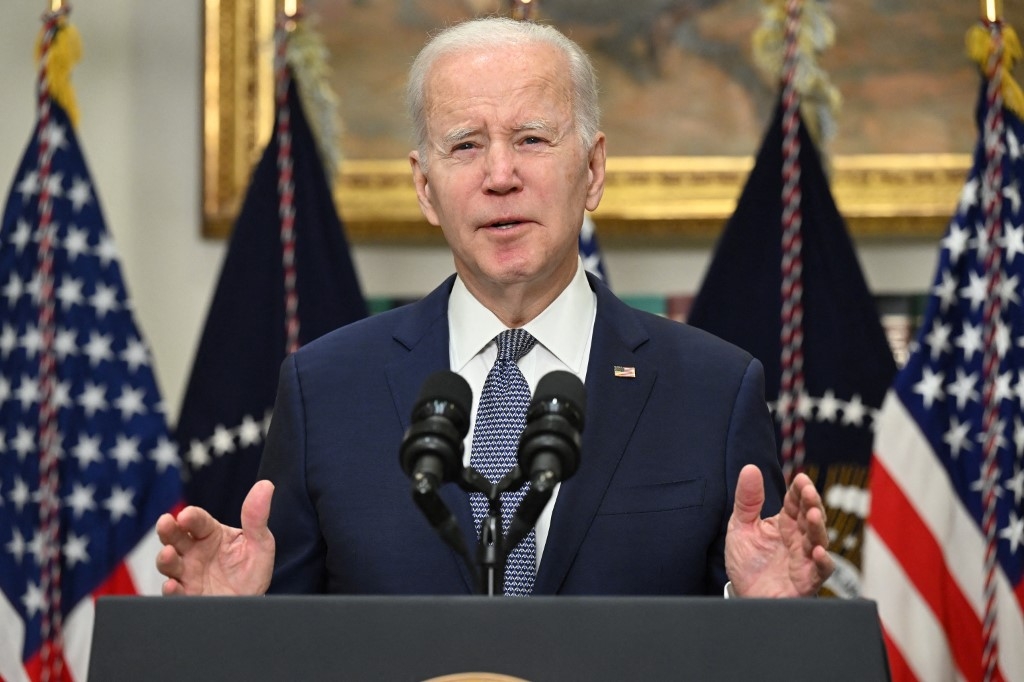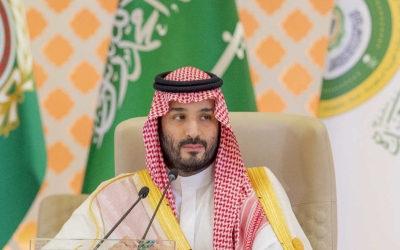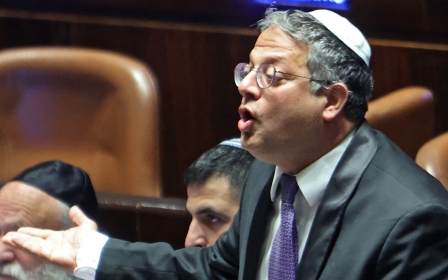Biden says Saudi Arabia has 'no problem with Israel', normalisation depends on US

US President Joe Biden said on Sunday that Israel and Saudi Arabia are “a long way” from normalising ties, in the clearest remarks to date that the US has been unable to seal a deal between its two Middle East partners.
Biden’s comments follow a media frenzy - mostly within the Israeli press - that Saudi Arabia and Israel were inching towards an agreement. The hype reached its apex in May after top Biden advisor Jake Sullivan said normalisation was in the US national security interests.
On Sunday, Biden told CNN: "We're a long way from there. We got a lot to talk about.”
Middle East Eye reported that a deal in the near term appeared to be a long shot, with Crown Prince Mohammed Bin Salman enjoying being courted by both Israel and the US.
"MBS feels he is in a very strong position and doesn’t have to give in to anyone. [He] wants something outstanding to normalise,” Abdullah Baabood, a nonresident scholar at the Malcolm H. Kerr Carnegie Middle East Center, told MEE previously.
New MEE newsletter: Jerusalem Dispatch
Sign up to get the latest insights and analysis on Israel-Palestine, alongside Turkey Unpacked and other MEE newsletters
Biden was notably frank about what he believed it would take to reach a deal, saying: “I don't think they (Saudi Arabia) have much of a problem with Israel,” and “it depends upon the conduct and what is asked of us for them to recognise Israel”.
Biden’s comments appeared to contradict the official Saudi position that in order for normalisation to take place, the conflict between Israelis and Palestinians had to be “resolved”, which the spokesperson for Saudi Arabia’s embassy in Washington said as recently as June.
Biden's remarks also come after Israel launched a deadly attack on the Jenin refugee camp in the occupied West Bank, which the Israeli government said was intended to eliminate Palestinian fighters.
Twelve Palestinians were killed and thousands displaced in the attack, which was widely condemned by Arab and Muslim states.
MEE reported that the assault, and the Biden administration’s response, underlined how it has refused to put in place any red lines against Israel’s increasing use of sophisticated weaponry in the occupied region, including attack helicopters and drones.
Nuclear assistance and security guarantees
The UAE, Morocco and Bahrain established official relations with Israel in 2020 as part of the Abraham Accords. While Saudi Arabia was not a party to the deal, it was widely viewed as supportive of the move and it has been impacted.
Israel and Saudi Arabia cooperate quietly on security and intelligence. The US move to put Israel in Centcom - US military command for the Middle East - expanded those defence links. Last year, Saudi Arabia and Oman publicly joined Israel in US-led naval exercises for the first time.
The campaign to bring Saudi Arabia on board differs in many ways from 2020, when talks between Arab states and Israel were conducted in secret.
Saudi Arabia's opening demands in return for normalising ties have been leaked. Riyadh wants security guarantees from the US, help in developing a civilian nuclear programme, and fewer restrictions on arms sales.
But Biden appeared to pour cold water on those demands in his interview, saying, “whether or not we would provide a means by which they could have civilian nuclear power and/or be a guarantor of their security, that's, I think that's a little way off,” he said.
Israeli policymakers are themselves torn over whether to support Saudi Arabia’s nuclear bid, with the country’s energy minister saying in June it should oppose the effort.
Israel does not have a veto on the transfer of US technology, but Washington has long consulted its closest Middle Eastern ally on security and defence issues to ensure it maintains a "qualitative military edge" against Arab states.
The support of the powerful Israeli lobby in Washington would also be crucial to help Saudi Arabia reach an agreement with the US, at a time when many lawmakers - including in Biden’s own party - want to constrain the relationship with Riyadh over human rights concerns.
"The Biden administration does not want to go to war with members of the Democratic Party for this deal,” Aaron David Miller, former State Department advisor, now a senior fellow at the Carnegie Endowment for International Peace, previously told MEE.
Middle East Eye delivers independent and unrivalled coverage and analysis of the Middle East, North Africa and beyond. To learn more about republishing this content and the associated fees, please fill out this form. More about MEE can be found here.





